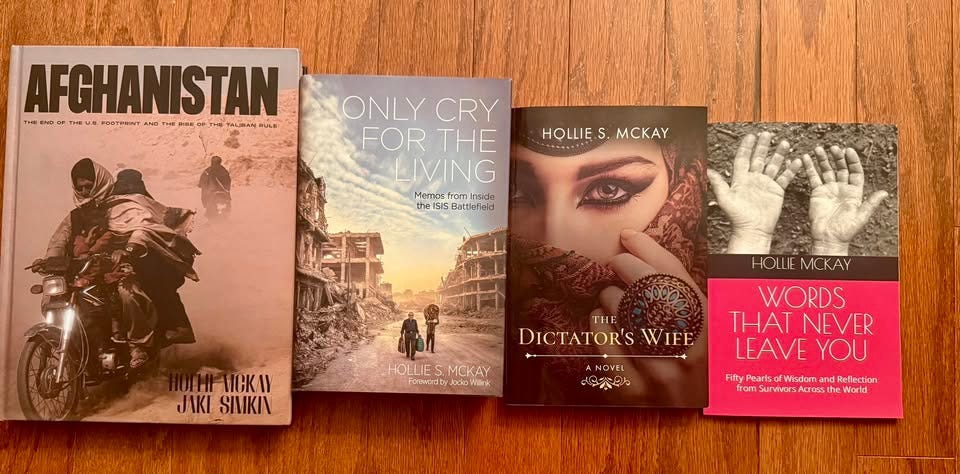Breaking the Silence: Filmmaker Tahyna MacManus on Miscarriage and Peeling Away the Stigma
If you watch one thing this week, make it this
When I first met fellow Aussie Tahyna MacManus (back then Tozzi), we were twenty-year-olds finding our footing by the beach in Los Angeles, far from home. She was one of those rare humans—Angelina-level beautiful inside and out—who I instantly knew was destined to do something incredibly meaningful. Someone who would change the narrative. Someone who would bring light to what too often stays in the dark.
I’m so grateful she did.
Many years later, when Tahyna set out to make a film about miscarriage, she wasn’t trying to be a pioneer. She was heartbroken, confused, and aching for connection. What she ended up creating was nothing short of a quiet revolution.
Her deeply personal documentary, Misunderstandings of Miscarriage (M.u.M), is now available in the United States after a five-year journey marked by resistance, resilience, and raw revelation. The film peels back the curtain on a topic long smothered in silence and stigma, inviting women—and society at large—into a long-overdue, compassionate conversation about pregnancy loss.
That conversation couldn’t come soon enough.
According to the American College of Obstetricians and Gynecologists, as many as 1 in 4 known pregnancies end in miscarriage. After age 40, that figure climbs to a staggering 1 in 2. Millions of women experience this loss every year—yet many still feel they must grieve in silence. Most miscarriages occur in the first trimester, before pregnancy is publicly shared, rendering the pain invisible and the support system almost nonexistent.
“I always instinctively knew that if I felt something this strongly, others must too,” Tahyna tells me. “But it was still confronting—to be filming while I was going through it, trying to process my own loss while asking others to share theirs.”
The film blends intimate, deeply human stories of loss and healing with expert interviews and unflinching footage from Tahyna’s own journey. It challenges the sterile medical vocabulary often used around miscarriage—“non-viable pregnancy,” “tissue expulsion”—and reframes it for what it really is to so many: the loss of a baby, and the life that was dreamed into being.
In the U.S., where Tahyna experienced her first miscarriage before returning to Sydney, she was discharged from the hospital within two hours.
“There was no follow-up, no information,” she recalls. “I was just given a Panadol (Tylenol)—and sent home. So you go down the rabbit hole, Googling things yourself.”
This chasm between physical care and emotional support became the backbone of the documentary’s purpose.
“To a doctor, it might be a group of cells. But to that woman, to that family—it’s a baby. It’s a future. It’s a loss that deserves to be honored,” she says. “We need a middle ground where care is both clinical and compassionate.”
Now a mother of three, Tahyna endured three devastating losses—each documented with raw vulnerability in the film. Like so many women who’ve walked this road, she speaks of the instant dreams that come with a positive pregnancy test: who the child might be, what they’ll sound like when they laugh, the shape of their little fingers. And when that’s ripped away, the grief lingers—silent, aching, unspoken.
Her mission touches a broader truth: only 45% of women who miscarry say they receive adequate emotional support from medical professionals. Miscarriage may be biologically common, but socially, it remains isolating—and shrouded in shame.
Since M.u.M’s release, the impact has been tangible. In Australia, legislation has shifted. Women who experience miscarriage are now entitled to two days of paid bereavement leave, under reforms to the Fair Work Act—an acknowledgment, at last, that this loss is real and worthy of time to grieve. Health systems are using the film as a resource for awareness and training. And most powerfully, women around the world are beginning to speak up, sharing stories once locked behind closed doors.
But it wasn’t an easy road.
“For years, even in Australia, it was hard to get people to find the film,” she says. “Getting it to international audiences took five years. It’s not as simple as uploading it and hitting publish.”
With co-producer Kelly Tomasich, Tahyna poured years of personal energy, finances, and emotion into bringing the film to life and getting it seen.
“We still get emails from corners of the world: ‘Where can I watch this?’” she says. The hunger for honesty, for shared experience, is everywhere.
The film also addresses something painfully familiar to many women: the deep sense of shame that often follows miscarriage.
“There’s this ingrained belief that equates womanhood with motherhood,” she explains. “So when a pregnancy doesn’t progress, it feels like you’ve failed at being a woman.”
And while the U.S. still lags behind in systemic support—there are no federal laws guaranteeing bereavement leave for miscarriage, no universal mandate for emotional care, and minimal training for medical staff in trauma-informed responses—the hope is that this film might be a spark.
Creating M.u.M stretched Tahyna to her emotional edge, but it’s a legacy she carries with pride.
“The biggest challenge was getting over myself,” she admits. “It wasn’t the filming—it was in the edit, piecing it all together, sitting with that much of my own vulnerability.”
She did it all while navigating the fragile terrain of pregnancy after loss—a landscape filled with joy shadowed by anxiety, where every milestone feels tentative.
“When I was pregnant with my second, I had intense anxiety,” she recalls. “But I knew I had to push through, not just for myself—but for the women watching.”
Misunderstandings of Miscarriage is more than a documentary. It’s a mirror and a megaphone. It reflects the quiet heartbreak so many carry, and it gives voice to what for too long has been whispered.
Yet M.u.M is not just a story of grief—it’s a story of grit, grace, and the human spirit.
“The whole goal was to have a positive message—so women don’t feel alone in that mind game of trying to have a baby,” Tahyna adds.
Perhaps most beautifully, it offers this: a reminder to every grieving mother, every hopeful parent, every family shattered by loss—that you are seen, you are heard, and you are not alone.
WHERE TO WATCH MUM
FOR EXCLUSIVE GLOBAL CONTENT AND DIRECT MESSAGING, PLEASE CONSIDER A PAID SUBSCRIPTION TO THIS SUBSTACK TO HELP KEEP INDEPENDENT, AGENDA-FREE WRITING AND JOURNALISM ALIVE. THANK YOU SO MUCH FOR YOUR SUPPORT.
For speaking queries please contact meta@metaspeakers.org
For ghostwriting, personalized mentoring or other writing/work-related queries please contact hollie@holliemckay.com
Follow me on Instagram and Twitter for more updates
Click to Purchase All Books Here







Written some words on my experience x